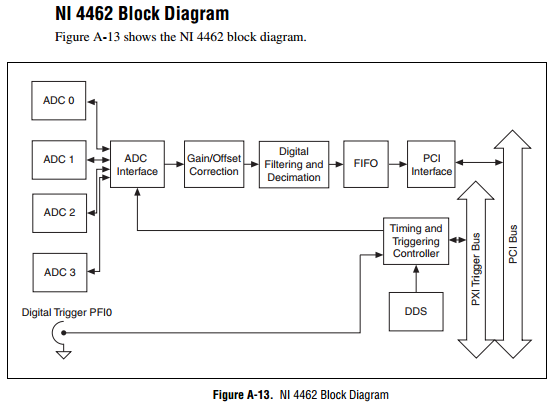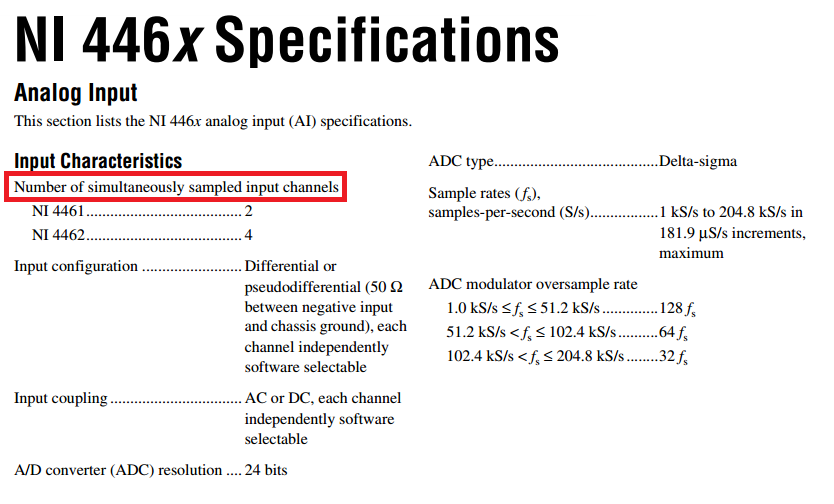Looking at this manual, http://www.ni.com/pdf/manuals/371235h.pdf
I see the following picture related to a DAQ board's ADC,

Assuming all 4 ADC channels are used, how would multiple ADC channels be processed? Which of the following be more likely?
- The ADCs collects samples sequentially, i.e.: ADC 0 collects one sample, then ADC 1, then ADC 2, then ADC 3, then back to ADC 0 again, etc.?
- ADC 0 to 3 all collect samples simultaneously?

